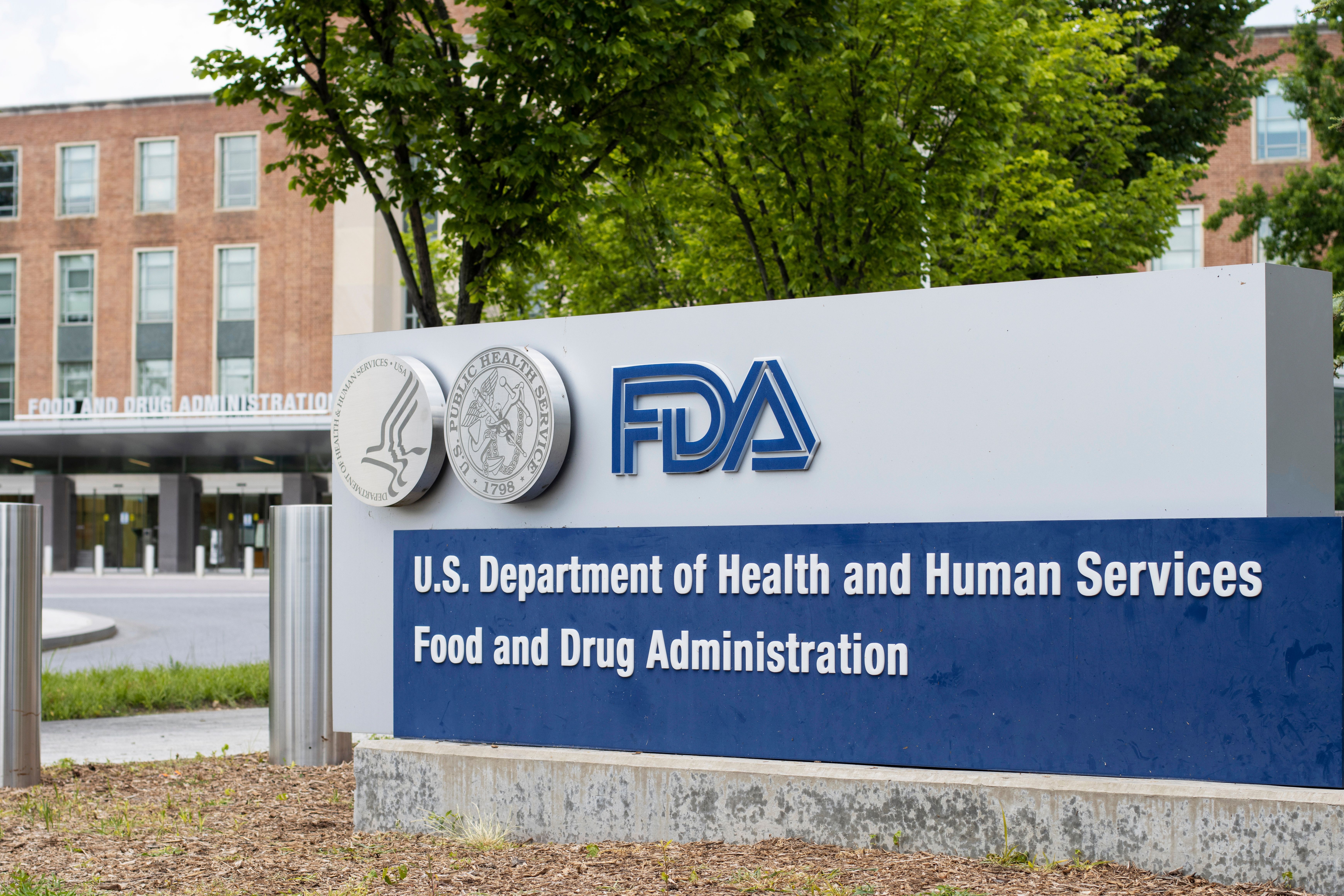- Center on Health Equity & Access
- Clinical
- Health Care Cost
- Health Care Delivery
- Insurance
- Policy
- Technology
- Value-Based Care
FDA Issues CRL for Patritumab Deruxtecan for Locally Advanced, Metastatic EGFR-Mutated NSCLC
The complete response letter (CRL) was not related to safety or efficacy data, but was a result of inspection findings at a third-party manufacturing facility.
The CRL did not mention any issues with the drug’s safety or efficacy data | Image credit: Tada Images – stock.adobe.com

The FDA has issued a complete response letter (CRL) for the biologics license application (BLA) of patritumab deruxtecan (HER3-DXd) for the treatment of adults with locally advanced or metastatic EGFR-mutated non–small cell lung cancer (NSCLC), Merck announced.1
Importantly, the CRL did not mention any problems with the drug’s safety or efficacy data that were submitted for review. Instead, the letter was a result of inspection findings at a third-party manufacturing facility. More specific information is not currently available.
“We will work closely with the FDA and the third-party manufacturer to address the feedback as quickly as possible in order to bring the first HER3-directed medicine to patients with previously-treated EGFR-mutated non–small cell lung cancer,” said Ken Takeshita, MD, global head of research and development at Daiichi Sankyo. “We remain confident in the ability to develop this medicine to its full potential.”
Merck and Daiichi Sankyo are collaborating to develop and commercialize patritumab deruxtecan, with Daiichi Sankyo being responsible for manufacturing and supply.
Patritumab deruxtecan was seeking FDA approval for patients who have already undergone 2 or more systemic therapies. The drug’s BLA was based on HERTHENA-Lung01 (NCT04619004) phase 2 trial results, which included 225 patients with advanced EGFR-mutated NSCLC who had experienced disease progression despite prior treatments with an EGFR tyrosine kinase inhibitor (TKI) and platinum-based chemotherapy.2 These results led to patritumab deruxtecan being granted priority review in December 2023 following a breakthrough therapy designation 2 years prior.3,4
The trial demonstrated a 29.8% objective response rate (95% CI, 23.9%-36.2%), with 1 complete response and 66 partial responses, and a median duration of response of 6.4 months (95% CI, 4.9-7.8).5 The phase 2 results also demonstrated a 73.8% disease control rate (95% CI, 67.5%-79.4%), median progression-free survival of 5.5 months (95% CI, 5.1-5.9), and median overall survival of 11.9 months (95% CI, 11.2-13.1).
The safety profile of patritumab deruxtecan was consistent with previous phase 1 studies, although treatment-emergent adverse events (TEAEs) led to a treatment discontinuation rate of 7.1%. It’s important to note that nearly 65% of patients experienced grade 3 or higher TEAEs, with the most common including thrombocytopenia (21%), neutropenia (19%), anemia (14%), leukopenia (10%), fatigue (6%), hypokalemia (5%), and asthenia (5%).
“The results from HERTHENA-Lung01 provide compelling evidence of efficacy of patritumab deruxtecan in heavily pretreated patients with advanced EGFR-mutated non–small cell lung cancer,” said Helena Yu, MD, associate attending physician at Memorial Sloan Kettering Cancer Center, when the study results came out. “The clinically meaningful efficacy observed across a broad range of HER3 expression and diverse mechanisms of EGFR TKI resistance, as well as the antitumor activity seen in patients with brain metastases, underscore the potential of patritumab deruxtecan to become an important treatment option for a population of patients with lung cancer who have limited treatment options.”
Patritumab deruxtecan works by combining patritumab—a monoclonal antibody targeting the HER3 receptor, ErbB3—with the topoisomerase I inhibitor DX 8951—a semisynthetic, water-soluble derivative of camptothecin.6 The antibody-drug conjugate binds to HER3 upon administration, and after internalization, DX 8951 disrupts topoisomerase I activity by stabilizing its complex with DNA and preventing the repair of DNA breaks, leading to inhibited DNA replication and induced apoptotic cell death. HER3, part of the EGFR family, is often overexpressed in tumors.
Patritumab deruxtecan was developed using Daiichi Sankyo's unique DXd antibody-drug conjugate technology and consists of a fully human anti-HER3 imunoglobulin G1 monoclonal antibody linked to multiple topoisomerase I inhibitor payloads (DXd, an exatecan derivative) through cleavable tetrapeptide-based linkers.7
Approximately 85% of all lung cancer cases are NSCLC specifically, with 55% being diagnosed at an advanced stage. Globally, EGFR-activating mutations are present in 14% to 38% of NSCLC tumors. Existing therapies for patients with NSCLC following the progression of the disease after treatment with EGFR TKIs and platinum-based chemotherapy have demonstrated limited effectiveness, underscoring the need for novel treatments to enhance patient outcomes.
References
1. Patritumab deruxtecan BLA submission receives complete response letter from FDA due to inspection findings at third-party manufacturer. News release. Merck. June 26, 2024. Accessed June 26, 2024. https://www.merck.com/news/patritumab-deruxtecan-bla-submission-receives-complete-response-letter-from-fda-due-to-inspection-findings-at-third-party-manufacturer/
2. HERTHENA-Lung01: patritumab deruxtecan in subjects with metastatic or locally advanced EGFR-mutated non-small cell lung cancer. ClinicalTrials.gov. Updated May 20, 2024. Accessed June 19, 2024. https://classic.clinicaltrials.gov/ct2/show/NCT04619004
3. Doherty K. Patritumab deruxtecan BLA receives priority review in NSCLC. OncLive®. December 22, 2023. Accessed June 19, 2024. https://www.onclive.com/view/patritumab-deruxtecan-bla-receives-priority-review-in-nsclc
4. Patritumab deruxtecan granted U.S. FDA breakthrough therapy designation in patients with metastatic EGFR-mutated non-small cell lung cancer. News release. Daiichi Sankyo. December 23, 2021. Accessed June 19, 2024. https://www.daiichisankyo.com/files/news/pressrelease/pdf/202112/20211223_E1.pdf
5. Patritumab deruxtecan demonstrated clinically meaningful and durable responses in patients with EGFR-mutated metastatic non-small cell lung cancer in HERTHENA-Lung01 phase 2 trial. News release. Daiichi Sankyo. September 10, 2023. Accessed June 19, 2024. https://daiichisankyo.us/press-releases/-/article/patritumab-deruxtecan-demonstrated-clinically-meaningful-and-durable-responses-in-patients-with-egfr-mutated-metastatic-non-small-cell-lung-cancer-in-
6. Patritumab deruxtecan. National Cancer Institute. Accessed June 19, 2024. https://www.cancer.gov/publications/dictionaries/cancer-drug/def/patritumab-deruxtecan
7. Patritumab deruxtecan granted priority review in the U.S. for certain patients with previously treated locally advanced or metastatic EGFR-mutated non-small cell lung cancer. News release. Merck. December 22, 2023. Accessed June 19, 2024. https://www.merck.com/news/patritumab-deruxtecan-granted-priority-review-in-the-u-s-for-certain-patients-with-previously-treated-locally-advanced-or-metastatic-egfr-mutated-non-small-cell-lung-cancer/
